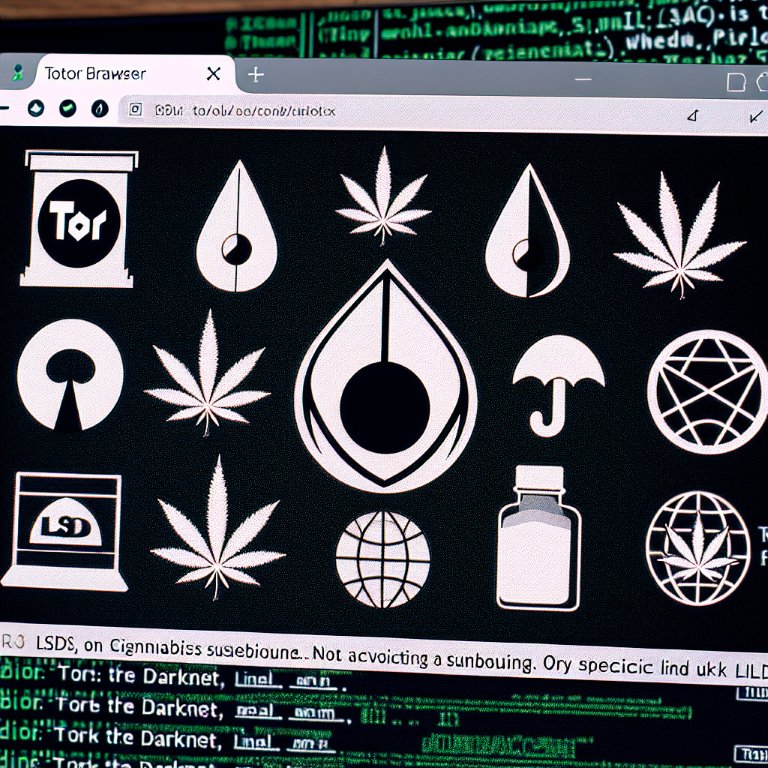Darkmarkets | Darknet Markets 2025
Darknet markets provide a decentralized platform for the trade of various goods, offering anonymity and security to users. These platforms utilize advanced encryption and cryptocurrency transactions, ensuring privacy and reducing risks associated with traditional commerce. The efficiency of darknet markets in facilitating transactions highlights their role in modern digital economies, emphasizing user autonomy and innovative trade practices.
Darknet Markets 2025:
The dark web is part of the deep web but is built on darknets: overlay networks that sit on the internet but which can't be accessed without special tools or software like Tor. Tor is an anonymizing software tool that stands for The Onion Router — you can use the Tor network via Tor Browser.
| Darknet Market | Established | Total Listings | Link |
|---|---|---|---|
| Nexus Market | 2024 | 600+ | Onion Link |
| Abacus Market | 2022 | 100+ | Onion Link |
| Ares | 2025 | 100+ | Onion Link |
| Cocorico | 2023 | 110+ | Onion Link |
| BlackSprut | 2023 | 300+ | Onion Link |
| Mega | 2016 | 400+ | Onion Link |
Updated 2025-07-08

The Evolution of Digital Trade: How Darknet Markets Revolutionize Commerce with Privacy and Innovation
The rise of darknet markets represents a transformative shift in the landscape of digital trade, driven by the principles of decentralization, anonymity, and secure transactions. These platforms have emerged as a cornerstone of innovative commerce, leveraging advanced cryptographic technologies to facilitate trade in a manner that prioritizes user privacy and autonomy. Unlike traditional e-commerce platforms, darknet markets operate on decentralized networks, ensuring that transactions are not only secure but also resistant to censorship and external interference.
One of the most significant contributions of darknet markets is their role in normalizing the use of cryptocurrencies as a medium of exchange. By integrating blockchain technology, these platforms enable seamless, borderless transactions that are both transparent and pseudonymous. This has not only enhanced the efficiency of digital trade but also paved the way for the broader adoption of cryptocurrencies in mainstream commerce. The reliance on encryption and decentralized ledgers ensures that users can engage in trade without fear of surveillance or data breaches, fostering a new era of financial privacy.
Darknet markets have also demonstrated remarkable adaptability in catering to diverse consumer needs. From pharmaceuticals to digital services, these platforms offer a wide array of goods that are often inaccessible through conventional channels. This diversity underscores the potential of darknet markets to serve as a hub for innovative trade practices, where users can freely exchange value without the constraints imposed by traditional market structures.
- The decentralized nature of darknet markets ensures that trade is not monopolized by centralized entities, promoting a more equitable distribution of resources.
- Secure transactions, facilitated by cryptographic protocols, minimize the risk of fraud and enhance trust between buyers and sellers.
- The integration of cryptocurrencies has redefined the concept of financial privacy, offering users unprecedented control over their economic activities.
Looking ahead, the influence of darknet markets on digital economies is poised to grow, as they continue to push the boundaries of what is possible in the realm of online trade. By championing decentralization and privacy, these platforms are not only reshaping the future of commerce but also challenging conventional notions of economic governance and regulation.
The Benefits of Privacy and Security in Darknet Commerce
The rise of darknet markets has revolutionized digital trade by prioritizing anonymity and security, enabling users to engage in transactions without exposing their identities. This decentralized approach to commerce leverages advanced cryptographic technologies, ensuring that sensitive information remains protected from unauthorized access. The use of cryptocurrencies, such as Bitcoin and Monero, further enhances privacy by eliminating the need for traditional financial intermediaries, which often require personal data for verification.
One of the most significant advantages of darknet markets is their ability to foster trust through encrypted communication and escrow systems. These mechanisms ensure that both buyers and sellers can conduct transactions with confidence, reducing the risk of fraud. For instance, the escrow system holds funds until the buyer confirms receipt of the product, creating a balanced and secure trading environment. This level of security is particularly beneficial for transactions involving pharmaceuticals and other controlled substances, where traditional markets often fail to provide adequate privacy or accessibility.
- The integration of Tor networks and end-to-end encryption ensures that user activity remains untraceable, safeguarding against surveillance and data breaches.
- Cryptocurrencies enable borderless transactions, allowing users to bypass restrictive financial regulations and access a global marketplace.
- The decentralized nature of darknet markets promotes user autonomy, empowering individuals to make independent decisions without external interference.
Moreover, the innovative use of blockchain technology in darknet markets has set a precedent for the future of digital commerce. By combining privacy-focused tools with efficient trade practices, these platforms demonstrate how secure and anonymous transactions can coexist with economic growth. As the demand for privacy continues to rise, darknet markets are likely to play a pivotal role in shaping the future of cryptocurrency privacy and innovative commerce, offering a model for mainstream platforms to adopt.
Cryptocurrency and Encryption: Driving Efficiency and Privacy in Darknet Trade
The rise of darknet markets has been fundamentally driven by the integration of cryptocurrency and encryption technologies, which have revolutionized the way decentralized trade operates. These technologies provide a robust framework for secure, private, and efficient transactions, enabling users to engage in commerce without the constraints of traditional financial systems. Cryptocurrencies such as Bitcoin, Monero, and Zcash have become the backbone of darknet economies, offering unparalleled levels of anonymity and reducing the risks associated with centralized oversight.
One of the key advantages of cryptocurrency in darknet markets is its ability to facilitate borderless transactions. Unlike fiat currencies, which are subject to governmental regulations and banking restrictions, cryptocurrencies operate on decentralized networks. This allows users to conduct transactions across international boundaries with minimal friction, fostering a truly global marketplace. Additionally, the use of blockchain technology ensures that transactions are immutable and transparent, while advanced encryption methods protect user identities and transaction details.
Encryption plays an equally critical role in maintaining the integrity of darknet markets. By employing end-to-end encryption, these platforms ensure that communication between buyers and sellers remains confidential. This not only safeguards sensitive information but also builds trust within the community. The combination of encryption and cryptocurrency creates a secure environment where users can confidently engage in trade, free from the fear of surveillance or data breaches.
- Decentralization: Darknet markets operate without a central authority, reducing the risk of censorship or shutdowns.
- Privacy: Advanced cryptographic techniques ensure that user identities and transaction details remain confidential.
- Efficiency: Cryptocurrencies enable fast, low-cost transactions, even across international borders.
The innovative use of these technologies has also paved the way for new trade practices, such as escrow services and reputation systems, which further enhance the reliability of darknet markets. These mechanisms ensure that both buyers and sellers adhere to agreed-upon terms, fostering a fair and transparent trading environment. As a result, darknet markets have become a model for how decentralized commerce can thrive in the digital age.
Looking ahead, the continued evolution of cryptocurrency and encryption technologies promises to further enhance the efficiency and security of darknet markets. Innovations such as zero-knowledge proofs and privacy-focused cryptocurrencies are likely to play a pivotal role in shaping the future of digital trade. By prioritizing user autonomy and privacy, darknet markets are not only redefining commerce but also challenging traditional notions of financial systems and economic freedom.

The Evolution of Decentralized Trade: Darknet's Role in Modern Commerce
The rise of darknet markets has revolutionized the concept of decentralized trade, offering a platform where users can engage in secure transactions with unparalleled privacy. These platforms have become a cornerstone of innovative commerce, leveraging cryptocurrency and advanced encryption technologies to facilitate seamless exchanges. The diversity of goods and services available on darknet platforms is vast, ranging from digital products to physical commodities, with a particular emphasis on substances that cater to niche consumer demands.
One of the most notable aspects of darknet markets is their ability to provide access to regulated substances in a manner that prioritizes user safety and discretion. By operating outside traditional regulatory frameworks, these platforms empower individuals to make informed choices about their consumption, free from the constraints of prohibitionist policies. The use of cryptocurrencies such as Bitcoin and Monero ensures that transactions remain anonymous, reducing the risks associated with financial surveillance.
- The decentralized nature of darknet markets fosters a competitive environment, driving innovation in product quality and customer service.
- Advanced encryption protocols guarantee secure communication between buyers and sellers, minimizing the risk of data breaches.
- The integration of escrow systems and user reviews enhances trust and transparency, creating a self-regulating ecosystem.
Looking ahead, the role of darknet markets in shaping the future of cryptocurrency privacy cannot be overstated. As these platforms continue to evolve, they are likely to influence mainstream commerce by demonstrating the viability of decentralized, privacy-focused trade models. The emphasis on user autonomy and secure transactions positions darknet markets as a driving force in the ongoing transformation of digital economies.
Empowering User Freedom Through Darknet Trade and Cryptocurrency Innovation
The rise of darknet markets has fundamentally reshaped the landscape of digital trade, offering users unprecedented levels of autonomy in their economic activities. By leveraging decentralized technologies, these platforms empower individuals to engage in transactions without the oversight of traditional financial institutions or centralized authorities. This shift has been particularly transformative for industries such as the pharmaceutical trade, where users can access a wide range of substances, including controlled medications, with greater ease and privacy.
One of the key drivers of this autonomy is the integration of cryptocurrencies like Bitcoin and Monero, which enable secure, anonymous transactions. Unlike traditional payment systems, cryptocurrencies operate outside the purview of government regulations, allowing users to maintain control over their financial data. This has fostered a thriving ecosystem where individuals can trade freely, without fear of censorship or surveillance.
- The use of encryption technologies ensures that communication between buyers and sellers remains confidential, further enhancing user privacy.
- Decentralized marketplaces reduce reliance on intermediaries, enabling direct peer-to-peer transactions that are faster and more cost-effective.
- The diversity of goods available on darknet platforms, from pharmaceuticals to digital services, reflects the growing demand for alternative commerce models.
Moreover, the innovative trade practices pioneered by darknet markets have set a precedent for the future of digital economies. By prioritizing user autonomy and privacy, these platforms challenge conventional notions of commerce and pave the way for a more inclusive and equitable trading environment. As the adoption of cryptocurrency privacy tools continues to grow, darknet markets are likely to play an increasingly influential role in shaping the future of global trade.

Revolutionizing Trade: How Darknet Innovations Enhance Privacy and Efficiency
The rise of darknet markets has revolutionized the concept of decentralized trade, offering a unique ecosystem where privacy and security are paramount. These platforms leverage advanced cryptographic technologies to facilitate transactions that are not only secure but also resistant to censorship. The integration of cryptocurrencies such as Bitcoin and Monero has further enhanced the efficiency of these markets, enabling seamless cross-border transactions without the need for traditional financial intermediaries.
One of the most significant innovations brought by darknet markets is the use of escrow systems and multi-signature wallets, which ensure that both buyers and sellers are protected during transactions. This trustless environment fosters a high level of confidence among users, encouraging the growth of a diverse marketplace. Additionally, the decentralized nature of these platforms allows for the emergence of niche markets, catering to specific consumer needs that are often overlooked by conventional e-commerce systems.
- The adoption of blockchain technology ensures transparency in transactions while maintaining user anonymity, a balance that is rarely achieved in traditional commerce.
- The use of end-to-end encryption in communication channels guarantees that sensitive information remains confidential, further enhancing the security of transactions.
- Darknet markets have also pioneered the use of decentralized autonomous organizations (DAOs), enabling community-driven governance and decision-making processes.
These innovations have not only streamlined trade but also paved the way for the future of cryptocurrency privacy in commerce. As darknet markets continue to evolve, they are likely to influence mainstream digital economies, driving the adoption of privacy-centric technologies and reshaping the way we perceive online trade.
The Role of Darknet in Revolutionizing Decentralized Commerce
The rise of darknet markets has fundamentally transformed the landscape of modern commerce by introducing a decentralized model of trade that prioritizes anonymity, security, and user autonomy. These platforms have become a cornerstone for innovative commerce, leveraging cryptocurrency and advanced encryption technologies to facilitate secure transactions. By eliminating intermediaries, darknet markets empower users to engage in peer-to-peer exchanges, fostering a more efficient and transparent trading environment.
One of the most significant contributions of darknet markets is their role in advancing the adoption of cryptocurrencies. These platforms have demonstrated the practical utility of digital currencies in enabling borderless and censorship-resistant transactions. The integration of blockchain technology ensures that every transaction is immutable and verifiable, enhancing trust among participants. This has not only solidified the position of cryptocurrencies in global commerce but has also spurred further innovation in privacy-focused financial tools, such as Monero and Zcash.
Darknet markets have also redefined the concept of decentralized trade by creating ecosystems where users can access a diverse range of goods and services without geographical or regulatory constraints. This has led to the emergence of niche markets that cater to specific consumer needs, driving competition and innovation. For instance, the availability of pharmaceuticals and research chemicals on these platforms has provided individuals with access to products that may be restricted or unavailable in their regions, thereby promoting consumer choice and autonomy.
- The use of end-to-end encryption ensures that user data remains secure, mitigating risks associated with data breaches and identity theft.
- Decentralized escrow systems enhance trust between buyers and sellers, reducing the likelihood of fraudulent transactions.
- The pseudonymous nature of transactions protects user privacy, enabling individuals to engage in commerce without fear of surveillance or discrimination.
Furthermore, darknet markets have played a pivotal role in shaping the future of privacy in commerce. By prioritizing user anonymity, these platforms have set a precedent for the development of privacy-preserving technologies in mainstream e-commerce. This has led to increased demand for secure communication tools, decentralized marketplaces, and privacy-centric payment systems, which are now being adopted by traditional businesses.
In conclusion, darknet markets have had a profound impact on modern commerce by promoting decentralized trade, secure transactions, and the widespread adoption of cryptocurrencies. Their influence extends beyond the digital realm, driving innovation and challenging conventional notions of commerce and privacy. As these platforms continue to evolve, they are likely to play an even greater role in shaping the future of global trade.

The Evolution of Digital Trade: How Darknet Markets Are Redefining Commerce
The rise of darknet markets has fundamentally transformed the landscape of digital trade, introducing a paradigm shift toward decentralized commerce and secure transactions. By leveraging blockchain technology and advanced encryption protocols, these platforms have created an ecosystem where users can engage in trade with unparalleled privacy and autonomy. This evolution is not merely a technological advancement but a redefinition of how economic interactions are conducted in the digital age.
One of the most significant contributions of darknet markets is their role in normalizing the use of cryptocurrencies as a medium of exchange. Bitcoin, Monero, and other privacy-focused coins have become the backbone of these platforms, enabling seamless and anonymous transactions. This has spurred innovation in the broader cryptocurrency space, driving the development of more secure and private payment solutions that benefit all sectors of digital commerce.
- The emphasis on decentralization has reduced reliance on traditional financial institutions, empowering users to take control of their economic activities.
- Advanced encryption ensures that sensitive data remains protected, fostering trust among participants and encouraging the growth of these markets.
- The integration of smart contracts and escrow systems has further enhanced transaction security, minimizing risks for both buyers and sellers.
Moreover, the diversity of goods and services available on darknet markets has demonstrated the potential for innovative commerce beyond conventional boundaries. From pharmaceuticals to digital services, these platforms have expanded access to products that are often restricted or overregulated in traditional markets. This has not only provided consumers with more choices but also highlighted the inefficiencies of centralized systems.
Looking ahead, the influence of darknet markets on digital economies is poised to grow. As privacy concerns become increasingly prominent, the demand for secure and anonymous trading platforms will likely drive further innovation. The integration of decentralized finance (DeFi) principles and the adoption of cutting-edge cryptographic techniques will continue to shape the future of commerce, making darknet markets a cornerstone of the evolving digital economy.